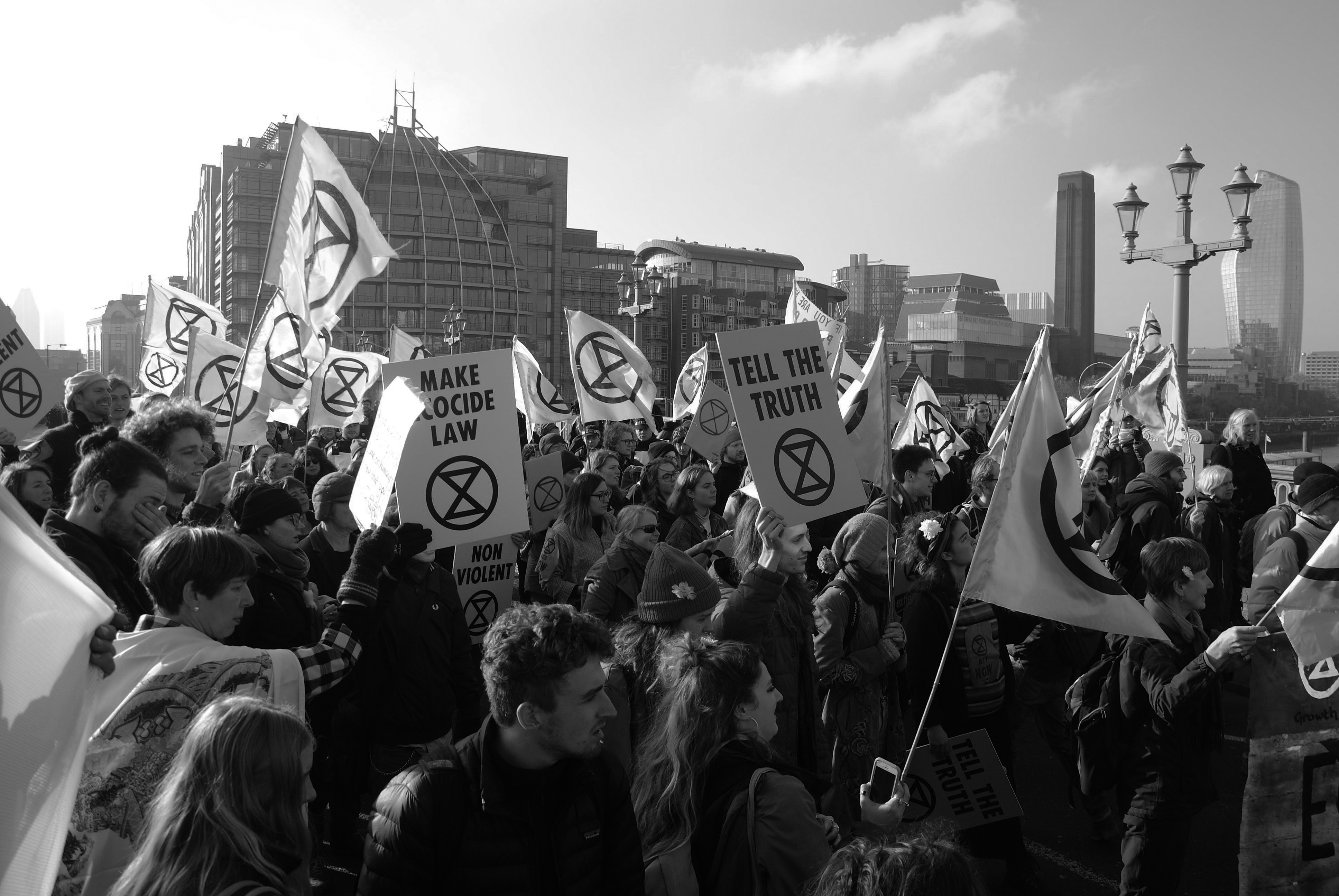‘Are you doing ok, do you need anything?’ I asked the lady whose hand was glued to the entrance of the Department of Business, Energy & Industrial Strategy. ‘I’m doing fine,’ she replied with a smile. Someone below her, locked on to another person and lying on the ground to block the revolving door entrance, needed a pillow. I had a few to hand, being part of the wellbeing group of Extinction Rebellion (XR) on this day of action leading towards Rebellion Day on 17 November 2018. The two dozen or so people super-glued to the doors and splayed in front of the Ministry office sought to bring wider attention to the climate emergency we are collectively facing. We aim to bring social momentum to get the UK government to declare an ecological emergency and put in place measures to avoid future catastrophe for our planet.

Southwark Bridge, London 17.11.18 © Kay Michael
Through a downpour we shared umbrellas and sang songs and made up chants to keep warm. It was quiet as the police held back, watching but not arresting anyone until suddenly there was an eruption of cheering as one of the initiators of Extinction Rebellion, Gail Bradbrook, clambered above the revolving doors to spray paint a message against fracking and the symbol for the movement (with a chalk based paint that washes off). As the police rushed over to crowd around the entrance, energy suddenly took over those protesting as a few dashed over from lying down by the building not being arrested, to lying down on the road to sit and block it. The cheering got louder. It was getting late but now the arrests began.
The XR protestors are prepared to face arrest and possible prison in order to bring media and civil society attention to the reality of climate collapse happening within the lifetime of the next generation. ‘Black Swan events’ are those outlier occurrences which, despite the best predictions of pundits in the know, seem to happen by chance and can radically alter society. Black Swan events have been proliferating recently like the Brexit referendum and Trump’s rise to power, leading to visible shifts in the cultural discourse over power, democracy, and the linking of Islamophobia to immigration. As if out of nowhere, they take the public, media and politicians by surprise and leave experts scrambling to give some kind of reasonable answer or sense of control over being able to predict the future.
The rest of this article is only available to subscribers.
Access our entire archive of 350+ articles from the world's leading writers on Islam.
Only £3.30/month, cancel anytime.
Already subscribed? Log in here.
Not convinced? Read this: why should I subscribe to Critical Muslim?